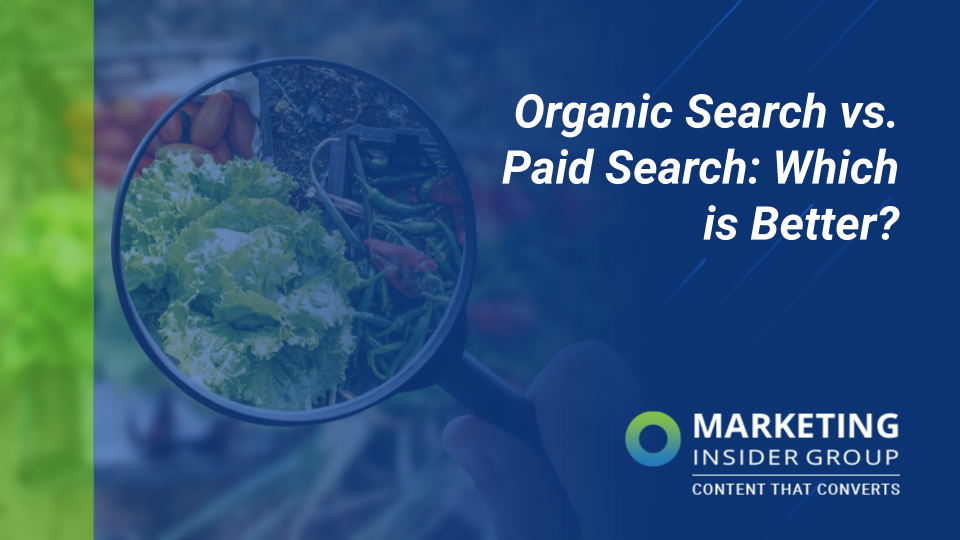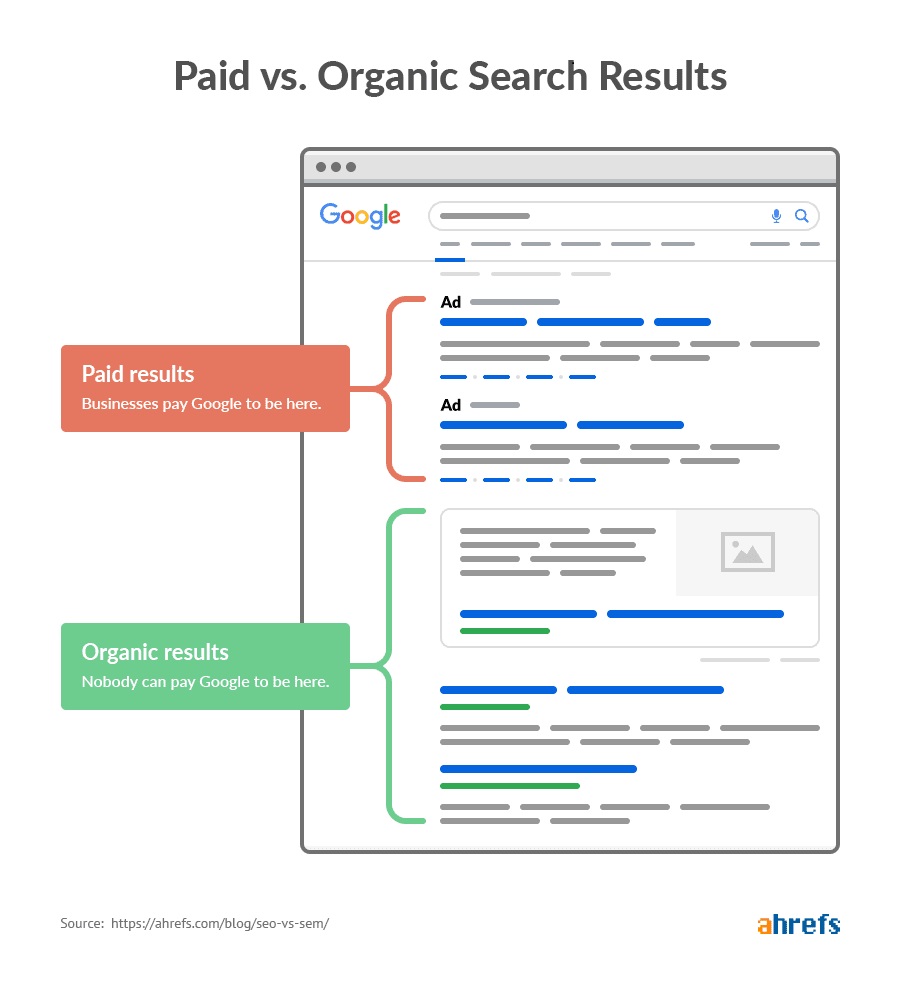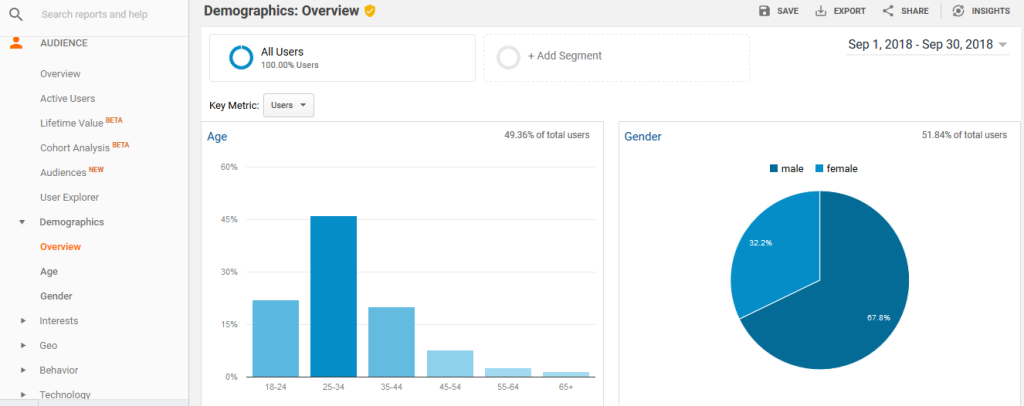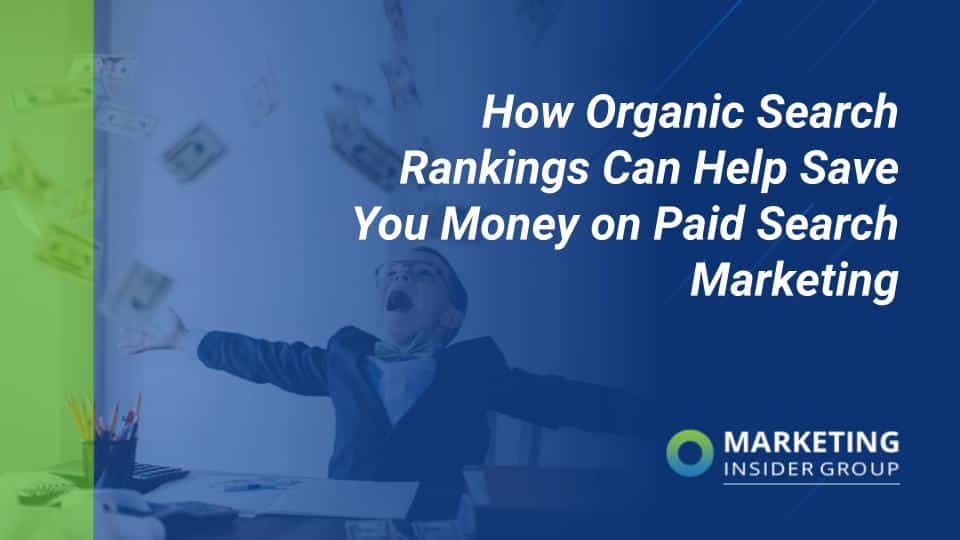
We’re here to let you in on a little secret: organic search rankings save money. We can’t bear to watch your marketing dollars go to waste on paid search marketing that isn’t generating the results you deserve.
Sure, your paid search ads are getting your content front and center, but are they maximizing your conversion rate and revenue? Not exactly. A recent study shows that 70% of search engine users prefer learning about companies through original content instead of ads. That means it’s time to start putting your marketing efforts where they matter most.
Not only will organic search rankings save money, but they’ll also generate qualified leads, increase engagement, and enhance your brand image. Here’s everything you need to know about organic search rankings so your company can start ranking content and increasing traffic.
Quick Takeaways
- Anyone can achieve organic search rankings for their business by maximizing SEO efforts, backlinks, and domain authority
- 86% of people searching on Google ignore paid ads, whereas 70% of links clicked are organic
- Organic search rankings save money by generating qualified leads, increasing engagement, building brand image, and more
- Featuring video content on your page makes you 53x more likely to rank on SERPs
Here’s what you need to know about how organic search rankings save money, and what you can do to start publishing content that ranks.
How Organic Search Rankings Save Money
Search rankings save money, if you invest in the right kind. When it comes to generating traffic, you have two main options: paid search and organic search marketing.
Paid Search
Paid search marketing or pay per click advertising (PPC) is exactly what it sounds like: rankings that you pay for. This is when companies and advertisers pay to purchase immediate rankings to generate more traffic to their website.
PPC marketing is the most common type of search ad, since advertisers only have to pay when someone clicks on their advertisement.
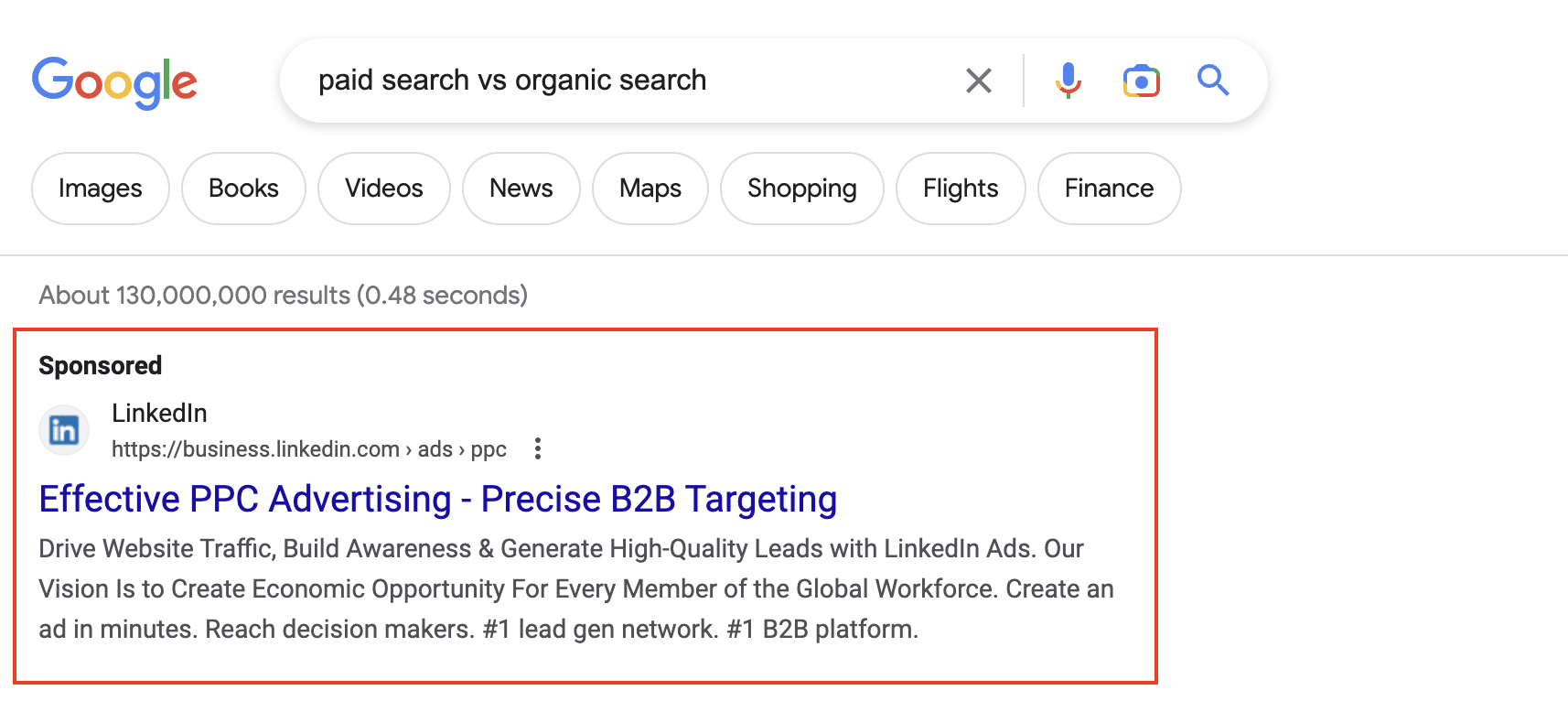
Image Source: Google
You’ve likely seen paid search marketing when searching on Google, but you can also find them in the form of:
- Social Media Ads. Facebook, LinkedIn, Instagram, and Twitter ads are all examples of PPC marketing.
- Display Ads. Sponsored text, images, or video banners featured on third-party websites.
- Native Ads. Paid marketing where the advertisement matches the form and context of its featured location.
Regardless of their form, they can get expensive and don’t guarantee sales. They also require a specific level of expertise to generate conversions.
Organic Search
On the other hand, organic search rankings are rankings that happen organically– without a direct payment. Anyone can achieve organic search rankings for their business by maximizing SEO efforts, backlinks, and domain authority.
With organic search marketing, you can drive traffic to your site naturally without draining your marketing budget.
What’s the Difference?
The main difference between paid and organic search is cost. Although organic search rankings take a little more patience to see your content on the 1st page of Google, you can achieve long-lasting results without a massive marketing budget.
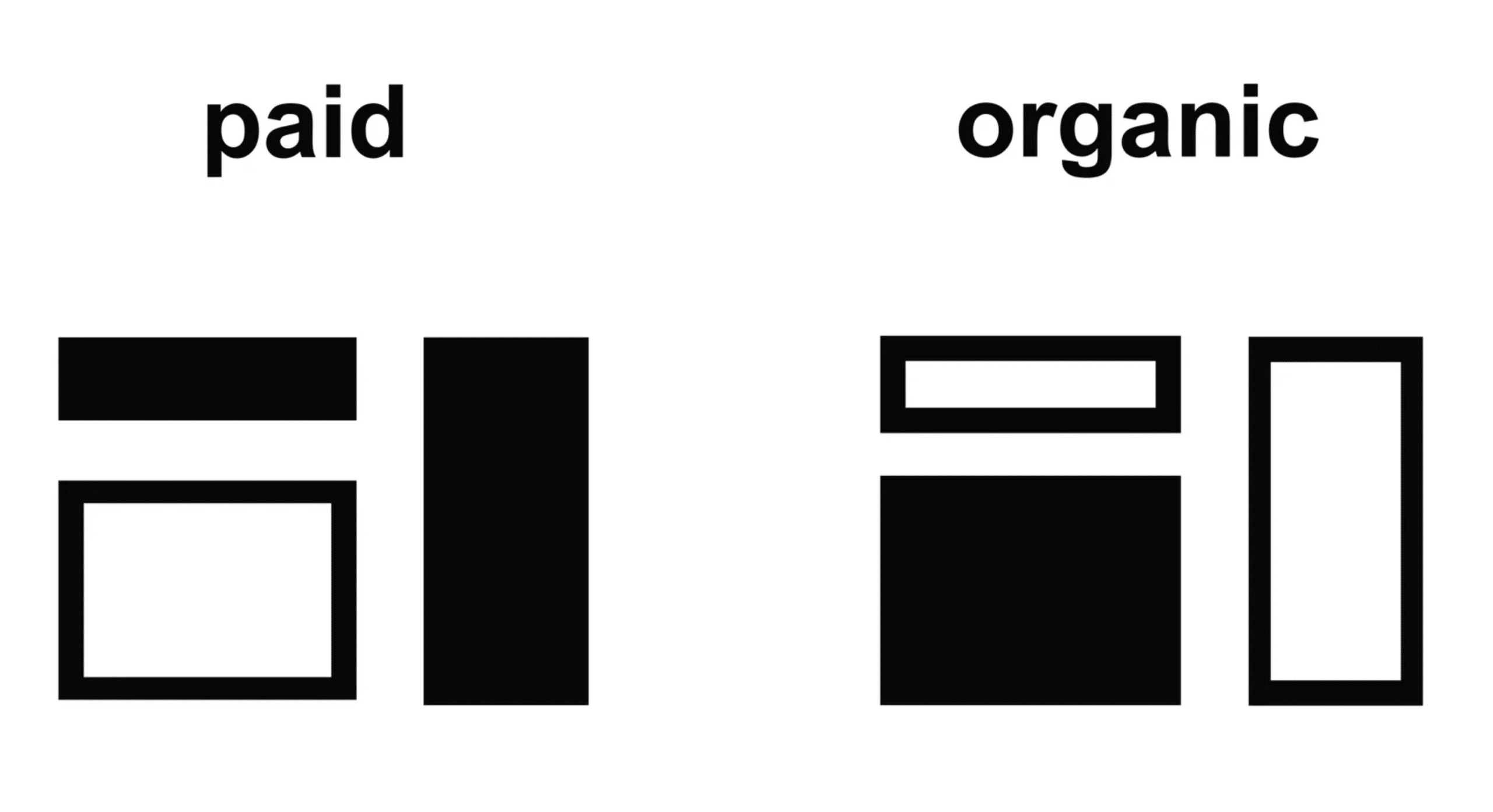
Image Source: Dr. Marketing
In many cases, businesses invest in both paid and organic search marketing. Although, if you can only commit to one, we recommend considering the following statistics:
- 86% of people searching on Google ignore paid ads. 70% of links clicked are organic.
- Organic search drives 10x more traffic than social media, and 53% of total website traffic
- 61% of B2B marketers reported that SEO and organic search generate more traffic than any other marketing effort
At the end of the day, building a strategy that generates organic search traffic will not only save money, but also generate qualified leads and maximize revenue.
Here’s an example. This article of ours on the Top Content Marketing Trends in 2023 ranks on page 1. It “cost” me 2 hours to write it. But the ad above our organic listing in Google search results costs the advertiser a few thousand bucks. Every single month.
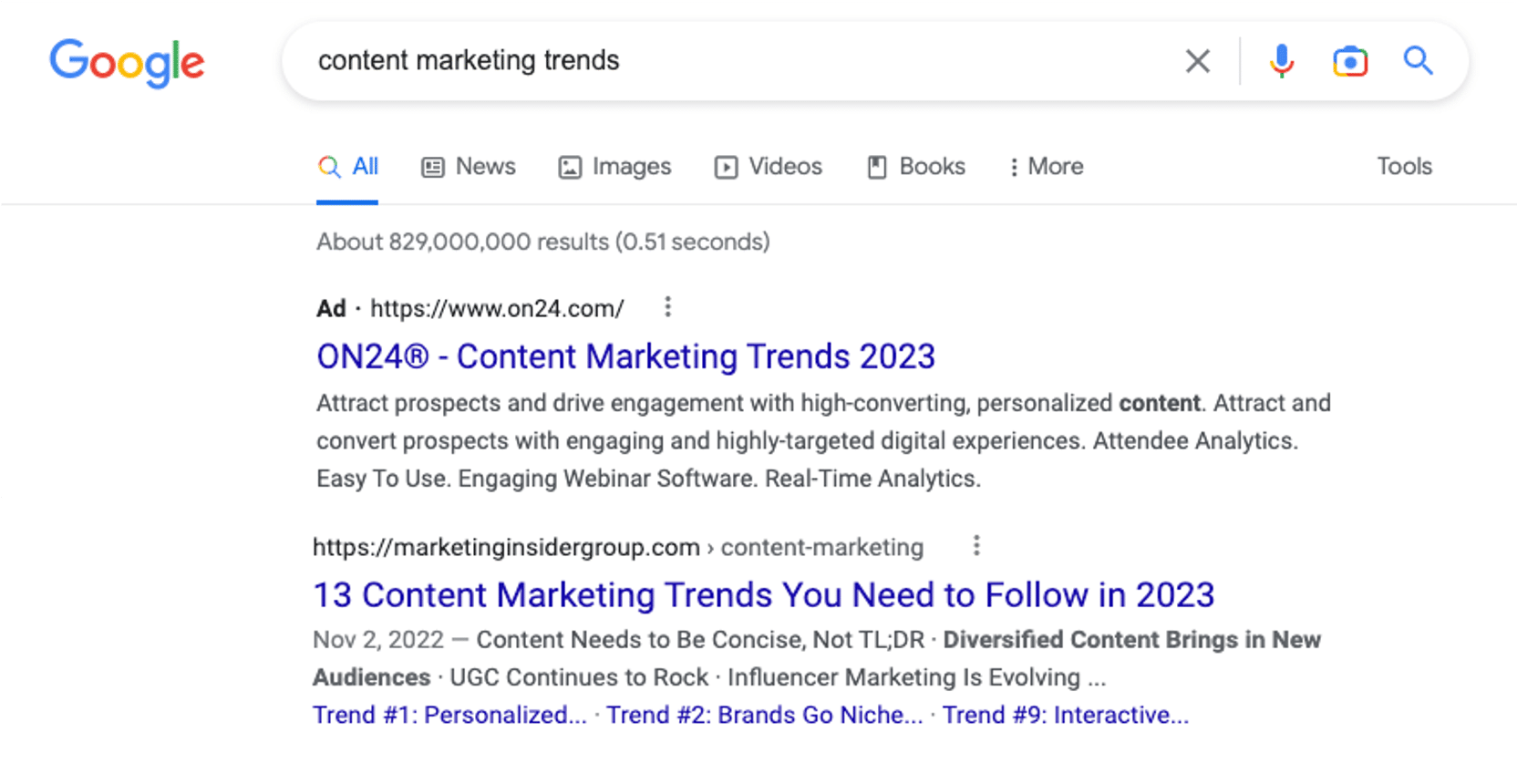
And we rank on #1 for hundreds of keywords!
The Benefits of Organic Search
We’ve seen organic search rankings save money for every type of business – but a maximized marketing budget isn’t the only benefit. Organic search rankings also:
- Generate qualified leads. With high organic rankings, anyone clicking on your company’s content is likely to have search intent that aligns with your products and services.
- Increase Engagement. Along with qualified leads comes increased engagement. As long as you’re creating high quality content for your audience and maximizing your page for conversions, site visitors will be urged to engage.
- Offer a sustainable approach to marketing. PPC advertising requires maintenance and manipulation to see success. Once you’ve gained visibility on SERPs, an organic marketing strategy keeps traffic flowing for years with minimal effort.
- Give you a competitive edge. By now, you know that SEO is crucial to see results. Once you dominate SERPs, you gain domain authority and credibility, and ultimately stomp out the competition.
- Build Branding. If your company is consistently showing up on SERPs as the solution to searchers’ questions, your brand is going to be remembered. Optimize the user experience, tell your brand story, and build your reputation to make sure your company’s products and services are a potential customer’s first thought.
Investing in an organic search marketing strategy is one of the best ways to generate leads, build engagement, and establish your brand image at minimal cost.
9 Ways To Build Organic Search Rankings
Almost 93% of all website traffic is generated by Google. That means generating more organic site traffic all comes down to great SEO. Here’s our top SEO best practices that walk the walk when it comes to saving money on paid search advertising.
1. Understand Google’s Algorithm
First and foremost, you need to understand how Google is ranking content. Every day, Google updates its search algorithm and ranks:
- High-quality, helpful content
- Content written by humans for humans
- Content that uses SEO best practices
These are just the basics – you can learn more about creating content that ranks by reading our article on 4 Things You Need To Know About Google’s Helpful Content Update. By creating new content and revising old content that aligns with Google’s preferences, you’re already headed in the right direction.
2. Create Content Using Relevant Keywords
The main goal of SEO content is to rank for target keywords. First, you need to have a clear understanding of the content you’re going to create. Then, create a data-based list of keywords or keyphrases relevant to your company’s content. Lastly, you need to assess the amount of traffic each term generates to figure out which will have the most ROI.
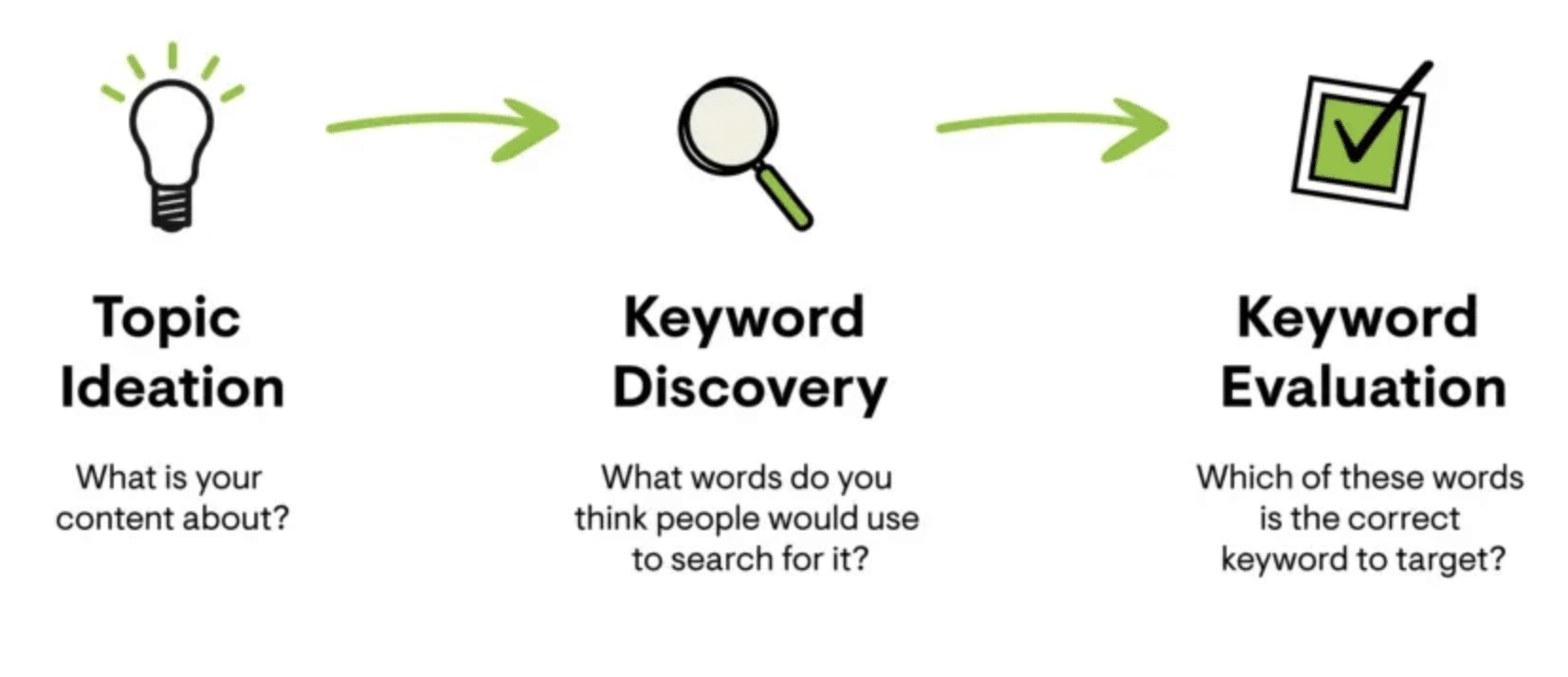
Image Source: Conductor
This can be done only by using tools like SEMrush, or you can work with a content marketing agency to conduct research for you. If you take the latter route, you’ll know exactly where your niche is and you can start publishing content that’s designed to rank.
3. Prioritize Your Blog Page
When it comes to organic search rankings, blogging is key. Companies who blog get 97% more links back to their website, making it easier for Google to crawl your content and feature your blog posts in relevant SERPs.
Blogging is also a great way to communicate with customers and teach them about your brand, products, and services. We have seen that creating a minimum of 1-2 blog posts per week, and keeping up with a consistent posting schedule gets the best results.
4. Be Consistent
It’s important to keep your content on a schedule if you want to see results. Both your audience and Google respond well to consistency because it proves that you’re committed to sharing expertise with readers.
We recommend using a dynamic calendar that outlines when you’ll write, proofread, and publish articles. This way, you can make sure you’re keeping up with content. Learn more about how a dynamic calendar works by watching the video below.
Video Source: DivvyHQ
5. Feature Video Content
It’s no secret that video content is all the rage these days, and Google is on board. Integrating videos throughout your content will help keep your audience engaged, enhancing its performance on SERPs. In fact, featuring videos on your page makes you 53x more likely to rank on page 1 of Google.
6. Outsource Content Creation
If you want Google to rank your content, it needs to be well-written. And we’re not talking about college-level literature – because actually, most Americans read at an 8th grade level. Creating well-written, readable content online means committing to a clean, simple writing structure. We recommend:
- Using bullet points
- Including headings and subheadings
- Keeping sentences short
- Using simple words
- Using active voice over a passive voice
And what’s the best way to create quality content quickly, you ask? By hiring a writer to do it for you! Not only does it take blog creation off your plate, but it also promises consistent content optimized to perform well on search engines.
7. Update Old Content
Revisiting old blog content and giving it a refresh can increase traffic by up to 270%. Remember, because Google likes valuable information. Any old, irrelevant content on your blog page can hurt your SEO and click-through rates over time.
In our opinion, it’s best to create new content and update old content at the same time. If you post 1-2 new blog posts and update 1 old one each week, keeping your site up-to-date is much easier – and it shows Google that your content is fresh, relevant, and valuable to readers.
8. Optimize Page Titles and URLs
With your keyword research in hand, it’s important to optimize your page titles and URLs. Make sure your page titles and URLs both include a relevant keyword to maximize your content’s performance. Don’t be afraid to get specific when plugging in your keywords, because any generic keywords may cause your content to get lost in the shuffle.
Here’s an example:
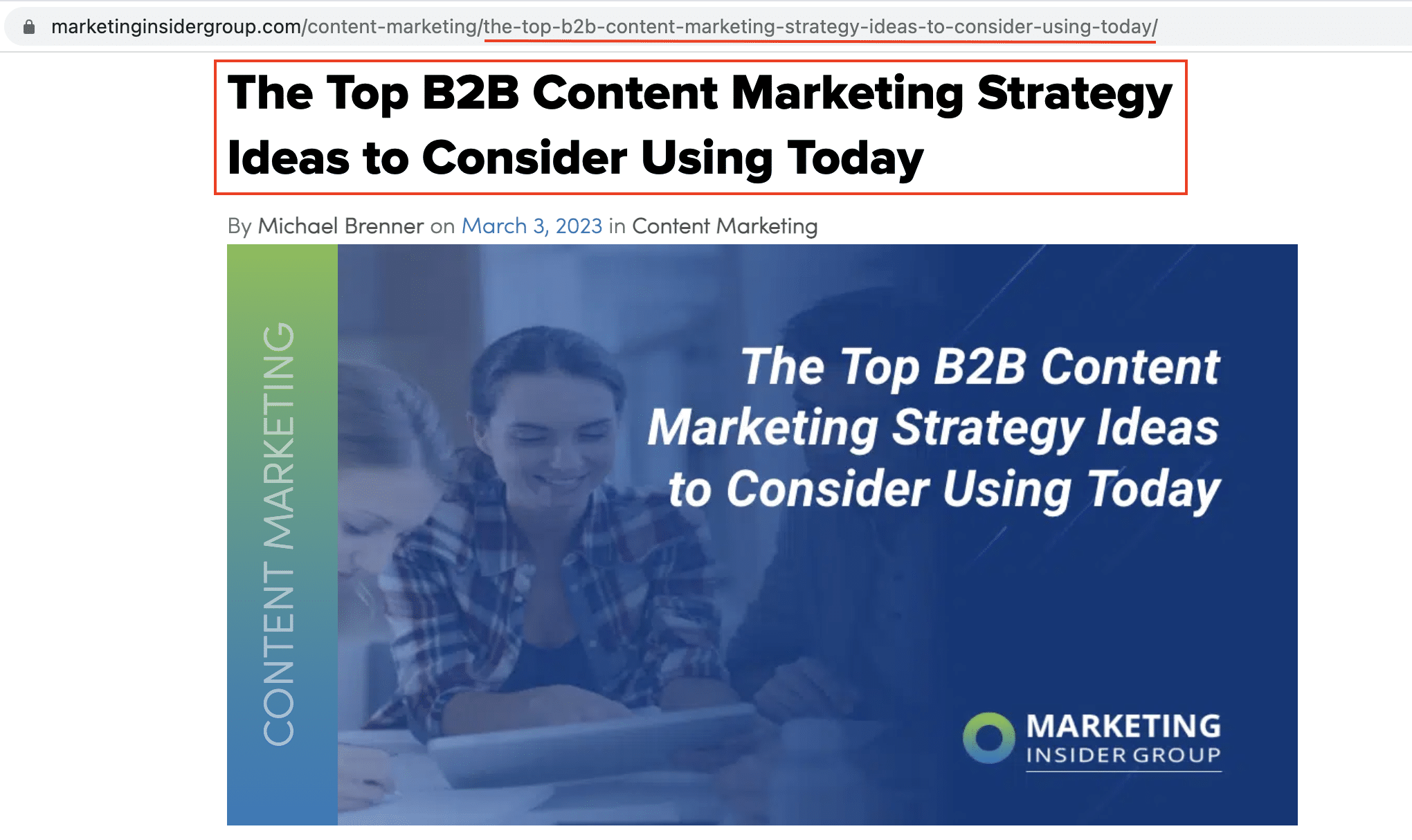
9. Backlinking
Backlinks are links found on other sites that direct back to your website. These signal to Google that your company’s content is valuable and has authority in your industry.
In most cases, the more backlinks, the better. Although, it’s your job to make sure they are coming from reputable sources. If any spam sites are linking back to your content, it will likely have a negative impact on your rankings. Similarly, when authoritative sites link to your content, it can really give your content a boost.
Start Saving With Organic Search Rankings Today
Organic search rankings save money by eliminating the need for continued paid search marketing. They also generate qualified leads, increase user engagement, give your company a competitive edge, and build your brand image. What’s not to love?
Ready to start saving? Marketing Insider Group can help. Our team of experts knows what it takes for your company to rank organically on SERPs. Get started today by checking out our weekly blog content service, or schedule a free consultation now to learn more!
The post How Organic Search Rankings Can Help You Save Money on Paid Search Marketing appeared first on Marketing Insider Group.

